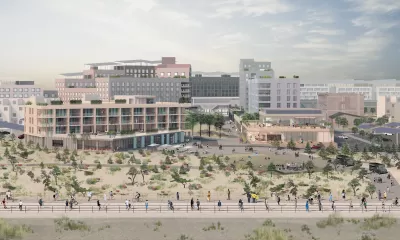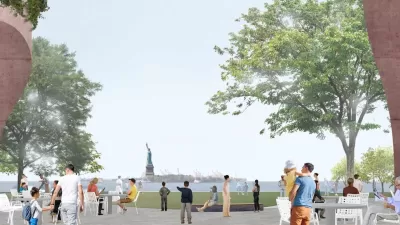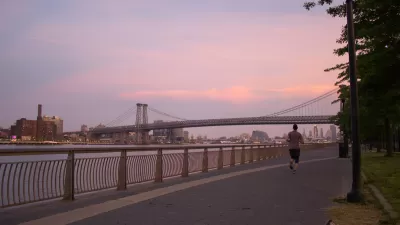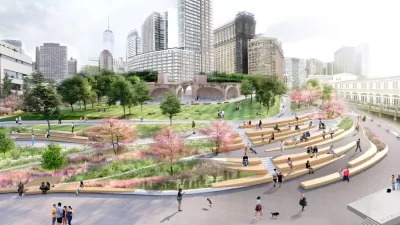The project, which relies largely on geothermal energy to minimize its carbon footprint, will bring affordable housing and boost storm resilience to an area devastated by Hurricane Sandy.

A $1-billion project on New York's Rockaway peninsula promises to be the city's first net-zero community, according to an article by Aysha Diallo. "The development will incorporate geothermal heating, passive house design to optimize energy efficiency, and a plan to raise the storm surge elevation, given the land’s vulnerability to flooding."
"The site, named Arverne East, is expected to have 1,650 units of housing, 1,320 of which are designated as affordable for formerly homeless, low, moderate and middle-income households. The design incorporates a range of green spaces, including a 35-acre nature preserve and an urban farm," writes Diallo.
As with similar redevelopment efforts, some residents worry the new development will deepen the socio-economic divide and drive up housing costs. "Compared to the west side of the peninsula, which has long been a summer getaway spot for middle- to upper-class city residents, these neighborhoods have larger minority populations and have historically fallen behind." But others hope the project will also bring much-needed economic development.
The developers will also shore up the peninsula's flood defenses, building resilience against future events like Hurricane Sandy. "The developers plan to elevate the land between three and eight feet, depending on location, so that ground floor spaces across the property are elevated by a total of 16 feet or more — higher than Hurricane Sandy’s storm surge of 14 feet."
Arverne East is the result of a years-long design and selection process that culminated in the current design by L+M Development Partners, the Bluestone Organization and Triangle Equities.
FULL STORY: NYC’s First Net Zero Community Brings Housing to Storm-Ravaged Neighborhood

Alabama: Trump Terminates Settlements for Black Communities Harmed By Raw Sewage
Trump deemed the landmark civil rights agreement “illegal DEI and environmental justice policy.”

Planetizen Federal Action Tracker
A weekly monitor of how Trump’s orders and actions are impacting planners and planning in America.

The 120 Year Old Tiny Home Villages That Sheltered San Francisco’s Earthquake Refugees
More than a century ago, San Francisco mobilized to house thousands of residents displaced by the 1906 earthquake. Could their strategy offer a model for the present?

Ken Jennings Launches Transit Web Series
The Jeopardy champ wants you to ride public transit.

BLM To Rescind Public Lands Rule
The change will downgrade conservation, once again putting federal land at risk for mining and other extractive uses.

Indy Neighborhood Group Builds Temporary Multi-Use Path
Community members, aided in part by funding from the city, repurposed a vehicle lane to create a protected bike and pedestrian path for the summer season.
Urban Design for Planners 1: Software Tools
This six-course series explores essential urban design concepts using open source software and equips planners with the tools they need to participate fully in the urban design process.
Planning for Universal Design
Learn the tools for implementing Universal Design in planning regulations.
Clanton & Associates, Inc.
Jessamine County Fiscal Court
Institute for Housing and Urban Development Studies (IHS)
City of Grandview
Harvard GSD Executive Education
Toledo-Lucas County Plan Commissions
Salt Lake City
NYU Wagner Graduate School of Public Service





























